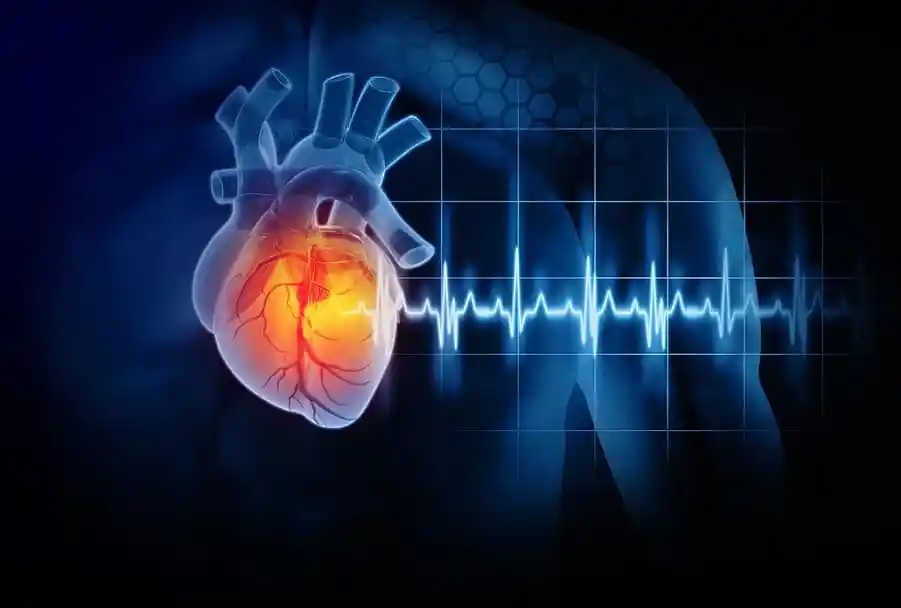Acute Coronary Syndrome (ACS) is a term that encompasses a range of heart conditions that result from a sudden reduction or blockage of blood flow to the heart muscle. It is a serious medical emergency that requires immediate attention and intervention. In this article, we will delve into the intricacies of ACS, exploring its causes, symptoms, and the importance of prompt medical care.
The Basics of Acute Coronary Syndrome:
The heart, our body’s diligent pump, relies on a constant supply of oxygen and nutrients carried by blood. When this vital supply is disrupted, it can lead to a cascade of problems collectively known as Acute Coronary Syndrome.
Causes:
Most cases of ACS are triggered by the formation of a blood clot within a coronary artery. This clot, often stemming from a ruptured cholesterol-filled plaque on the artery wall, impedes blood flow to the heart muscle. Additionally, spasm or constriction of the coronary arteries can contribute to the syndrome.
Symptoms:
Recognizing the symptoms of ACS is crucial for seeking timely medical assistance. The most common symptoms include:
1. Chest Pain or Discomfort:
– Often described as a tightness, pressure, or squeezing sensation in the chest.
– The pain may radiate to the arms, jaw, neck, back, or even the stomach.
2. Shortness of Breath:
– Difficulty in breathing, especially during exertion or at rest.
3. Nausea and Sweating:
– Feeling nauseated, lightheaded, or breaking into a cold sweat.
It’s essential to note that symptoms can vary, and some individuals may not experience chest pain at all. Being aware of these signs can mean the difference between prompt intervention and potential complications.
Diagnosis:
Diagnosing ACS involves a combination of clinical evaluation, medical history assessment, and diagnostic tests. Electrocardiograms (ECGs or EKGs), blood tests, and imaging studies such as angiography are commonly used to confirm the diagnosis and determine the severity of the condition.
Treatment:
Immediate treatment is imperative for ACS to prevent further damage to the heart muscle. The following interventions are often employed:
1. Medications:
– Aspirin and other antiplatelet drugs to prevent blood clotting.
– Nitroglycerin to alleviate chest pain.
– Statins to manage cholesterol levels.
2. Revascularization Procedures:
– Angioplasty and stent placement to open narrowed or blocked arteries.
– Coronary artery bypass grafting (CABG) for severe cases.
3. Lifestyle Changes:
– Adopting a heart-healthy diet.
– Regular exercise.
– Smoking cessation.
– Managing stress.
Importance of Timely Intervention:
ACS is a time-sensitive condition where every minute counts. Delay in seeking medical attention can lead to irreversible damage to the heart muscle, resulting in complications such as heart failure or life-threatening arrhythmias. Recognizing the symptoms and seeking help promptly can significantly improve outcomes and increase the chances of a full recovery.
Prevention:
Preventing ACS involves adopting a heart-healthy lifestyle and managing risk factors. This includes:
1. Healthy Eating:
– Emphasizing fruits, vegetables, whole grains, and lean proteins.
– Limiting saturated fats, cholesterol, and sodium intake.
2. Regular Exercise:
– Engaging in moderate-intensity aerobic exercise for at least 150 minutes per week.
3. Maintaining a Healthy Weight:
– Achieving and maintaining a healthy body weight.
4. Quitting Smoking:
– Tobacco smoke is a major risk factor for heart disease.
5. Managing Stress:
– Adopting stress-reducing techniques such as meditation or yoga.
Final thought
Acute Coronary Syndrome is a serious and potentially life-threatening condition that demands our attention and understanding. By recognizing the symptoms, seeking prompt medical care, and adopting a heart-healthy lifestyle, we can take proactive steps to reduce the risk of ACS and ensure a healthier heart for the long run. Remember, your heart deserves the utmost care, and a little attention today can go a long way in securing a healthier tomorrow.


